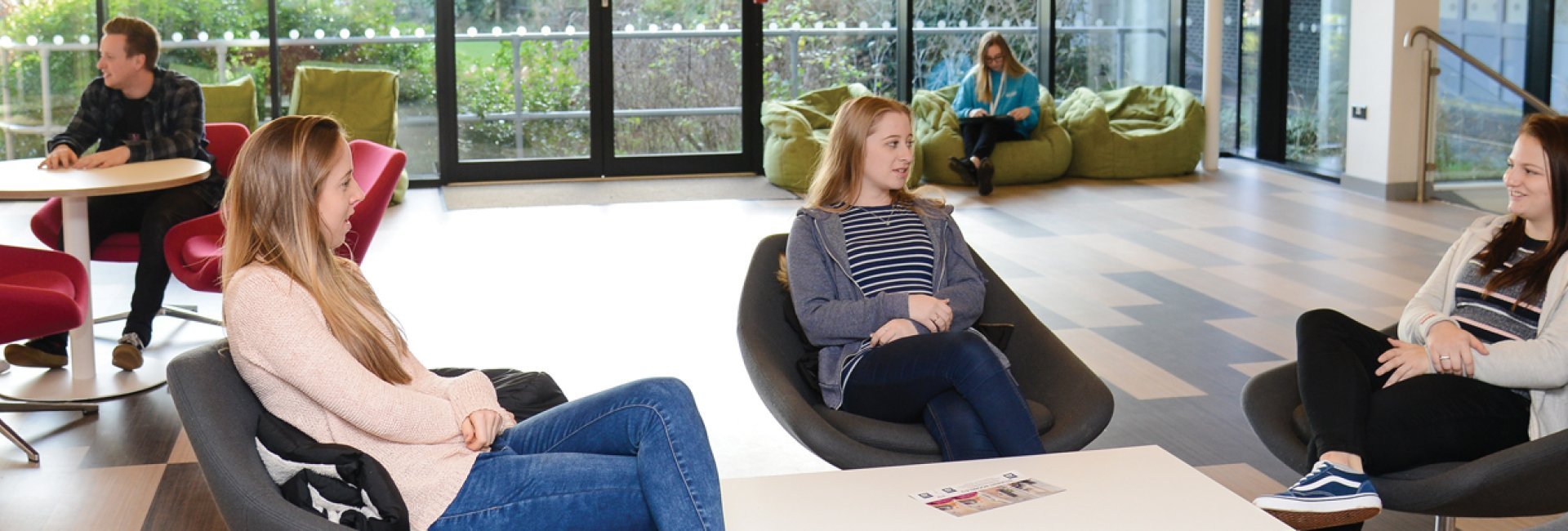Plymouth Marjon University - Undergraduate and Postgraduate
21 Jun 2025, 09:30
Plymouth


This course is accredited by the British Association of Sport Rehabilitators and Trainers (BASRaT) and after completion you will be able to apply to register as a professional member of BASRaT. You will work with athletes helping to return them to full functional fitness through expertly-developed rehabilitation programmes. Our modern teaching clinic allows you to experience the practical side of exercise rehabilitation from the start, always underpinned by the scientific principles of therapeutic interventions.
Why this course at Marjon?
• BASRaT accredited.
• A minimum of 400+ clinical hours of hands-on experience.
• Conduct research and assessments using the latest technologies such as diagnostic ultrasound, anti-gravity treadmill, RS footscan, laser therapy and interferential therapy.
• Placements are offered in professional sports teams (Plymouth Argyle FC, Plymouth Raiders, Plymouth Albion, Torquay United, and Plymouth Devils Speedway) as well as in amateur sport, disabled sport and within the military.
• Wide ranging modules to give you expertise in functional anatomy, physiology for sport and rehabilitation, sports biomechanics, soft tissue therapy, manual spinal therapy and injury management, sport science and strength and conditioning.
What might I become?
Our graduates have gone up to work for organisations such as Plymouth Argyle, Plymouth Albion and Torquay United. Graduates have also gone on to set up their own successful business as well as gaining jobs in the NHS and within the military.
Find out more at Open Day
Open Day is your opportunity to find out more about studying Rehabilitation in Sport and Exercise at Marjon. You’ll meet lecturers and look around our world class Sport & Health Centre. Our student life talks will help you prepare to go to university, covering topics such as careers, funding, sport and our award winning on-campus student support service. You can also take a tour of the campus with a current student and find out about the student-led clubs and societies.
Book on to an Open Day at: www.marjon.ac.uk/open-day
Why study at Marjon?
• First-class facilities used by world-class athletes
• Small, person-focused university with a big personality
• No.1 university in England for Student Satisfaction (Complete University Guide 2023)
• Southwest University of the Year for Student Life and Student Support (WhatUni Student Choice Award 2022)
• No.3 university in England for Learning Community (National Student Survey 2022)
Sarah Catlow - Course Lead, Sport Rehabilitation and Conditioning;
“We start by learning about the psychological behaviours that relate to high level sport performance and also learn soft tissue techniques to help relieve injuries with real clients. In the second year you will learn how to assess and treat spinal injuries, learn more about how the body heals after injury and undertake a work placement in the industry. The third year gives you more work experience and will give you a better understanding of injury prevention techniques.”
1st Year
Engaging with learning
Patient management
Physiology and conditioning
Functional anatomy for sport therapy and rehabilitation
Soft tissue theory
Musculoskeletal assessment
2nd Year
Research methods and analysis in sport and health sciences
Work based learning
Injury treatment modalities
Principles of exercise, coaching and rehabilitation
Manual therapy of the spine
Pathology and clinical reasoning
3rd Year
Honours project
Injury biomechanics
Strength training, conditioning and rehabilitation
Diagnostic, rehabilitation and injury management
Rehabilitation in Sport and Exercise - clinical experience
RFU Level 2 Intermediate Care in Sport
Assessment methods include case studies, written exams, essays, laboratory reports, poster, competence-based exams and practical exams.
To work as a teacher at a state school in England or Wales, you will need to achieve qualified teacher status (QTS). This is offered on this course for the following level:

Learn what it's like to study at Plymouth Marjon University. From key stats to campus highlights, open days, and more - find everything you need to know here.
The following entry points are available for this course:
This section shows the range of grades students were previously accepted with - learn more. It is designed to support your research but does not guarantee whether you will or won't get a place. Admissions teams consider various factors, including interviews, subject requirements, and entrance tests. Check all course entry requirements for eligibility.
Operated by the Office for Students
Employment after 15 months (Most common jobs)
Go onto work and study
The number of student respondents and response rates can be important in interpreting the data – it is important to note your experience may be different from theirs. This data will be based on the subject area rather than the specific course. Read more about this data on the Discover Uni website.
| Location | Fee | Year |
|---|---|---|
| EU | £14500 | Year 1 |
| Republic of Ireland | £9250 | Year 1 |
| England | £9250 | Year 1 |
| Northern Ireland | £9250 | Year 1 |
| Scotland | £9250 | Year 1 |
| Wales | £9250 | Year 1 |
| Channel Islands | £9250 | Year 1 |
| International | £14500 | Year 1 |
Tuition fee status depends on a number of criteria and varies according to where in the UK you will study. For further guidance on the criteria for home or overseas tuition fees, please refer to the UKCISA website.
EU applicants will be classed as International unless they have Pre-settled or Settled status.
Derriford Road
Plymouth
PL6 8BH
Visit our website Visit our course page
Email:admissions@marjon.ac.uk
Phone:01752 636890